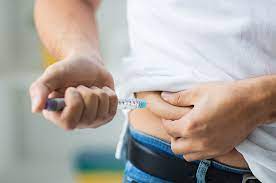People’s common diet goals are usually to maintain good health or to lose body weight. Some choose to consume fruit and vegetable juice only or more popularly known as the juice diet. Furthermore, it is believed that the juice diet can detoxify the body. But, is it true?
By definition, juice diet, or also known as juice detox, is a diet consuming only fruit and vegetable juice. During the detoxification process, one can only consume juice (often cannot consume other types of food) for 1-3 days. Lack of consumption of sugar, caffeine, and processed food consumption can also be the reason for detoxification.
The Benefits of The Juice Diet
Here are some of the benefits from the juice diet:
Nutrition
Vegetable and fruit are high in nutrition so consuming fruit and vegetable juice can increase the intake of vitamin, mineral, and other anti-inflammatory components. Micronutrition can assist immunity and improve health in general.
Energy
Some people report to be feeling more energetic after juice detox because the nutritional contents in the juice along with the zero consumption of extra sugar and preservatives in the processed food and drink.
Preventing Dehydration
People feel dehydrated because usually they do not consume enough water daily. Therefore, during the juice diet, the water contents in the juice can prevent dehydration.
Remove toxins
Some vegetable and fruit are known to be able to detoxify such as cauliflower, celery, and berries. However, some studies still question the accurate measurement for this assumption.
Better Digestion
Vegetable and fruit provide polyphenols, oligosaccharide, and fiber, all considered to have probiotic-like effect and improve digestion. For example, freshly squeezed orange juice can affect pH and acidity in the digestive system.
Losing Weight
The low-calorie content in juice and lack of sugary drink surely affect body weight. One can lose weight easily and rapidly during the juice diet. A study in 2017 found that although the juice diet is beneficial for short term weight loss, the weight gain will return shortly afterwards.
The Downsides of The Juice Diet
The juice diet however, also has downsides that need to be considered:
Unhealthy Diet
Deeming that other types of food besides fruit and vegetable as unhealthy can lead to unhealthy diet and lifestyle.
Cause Kidney Stones
Many juices are made using dark leaf greens and beet. Both are high on oxalate and can form kidney stones.
Reduces Blood Sugar
The diet is low in calorie which can also lowers the blood sugar. This can be dangerous for patients with diabetes or hypoglicemia.
Cause Bacterial Infection
Consuming unsterile juice can cause infection especially in people with chronic illness, small children, and the elderly. When making juice at home, make sure to wash the fruit and vegetables thoroughly and store in a tight lid jar for a maximum of 24 hours.
Based on those facts, we can conclude that the juice diet does not follow USDA rules and therefore is not recommended as healthy diet option. Choosing a more balanced and varied meals are better for general health and maintaining ideal long term body weight.
Sources:
- https://academic.oup.com/advances/article/7/1/48A/4524022
- https://www.verywellfit.com/juice-cleanse-89120
- https://www.ncbi.nlm.nih.gov/pmc/articles/PMC5438379/



